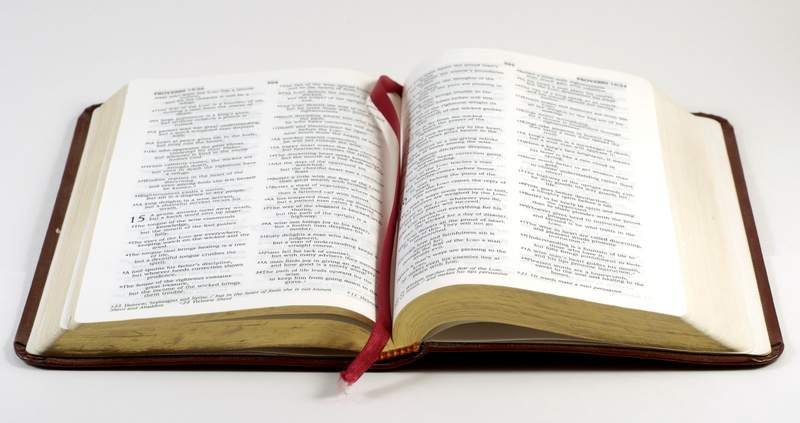(This little essay originated as a comment in another blog just now, and I thought it might be worth sharing.)
As a historian — and this is one of the things that led me to Catholicism — I feel like it’s a fallacy of the doctrine of sola scriptura to presume that we have all the sources and aren’t missing any information. We have to remember that there were twenty, thirty, maybe forty years between the events of Christ’s earthly ministry and the writing of the earliest Gospel. For those decades, the Church wasn’t just sitting around waiting patiently for God to give them the New Testament so they could begin preaching the Gospel. The original mode of transmitting the Gospel was by oral preaching and teaching, by the Apostles going out into the world and spreading it by word of mouth. The churches they established were many and far-flung, but they were in touch with each other, by believers traveling among them, by the Apostles returning to visit the churches like Paul wrote about, bringing news and teaching.
We have to accept that we just don’t have all of that from Scripture. The writers of the New Testament didn’t record absolutely everything that happened or was going on between the churches. The Gospels, by their own admission, aren’t even a full account of everything Jesus said and did (John 21:25) — and such a thing isn’t even possible. No writer can record everything, not even a divine one — because He’s limited by the very earthly medium of paper and pen. The books of the New Testament very frequently refer to events we don’t know about and can only infer, to people we don’t know, even to letters we don’t have (1 Corinthians 5:9, 7:1).
Now, Protestants believe that everything they need for salvation is recorded in the Scriptures — and I like to think that God really did give them enough to get them into heaven, since He surely knew ahead of time that they were going to bolt. But that doesn’t mean that everything is in the Scriptures. On many points, the Bible is silent. That doesn’t mean, however, that there necessarily aren’t answers. The Tradition handed down by the Church — not vague, amorphous “traditions,” but historically documented testimony to the Church’s beliefs from the earliest ages — can shed light in many places, and complete our incomplete picture of the Early Church.
It’s very compelling to me to study the Bible and discover all I can about the people and places in it — but my salvation doesn’t hinge on which Mary was which or whether Jesus’s “brothers” were Apostles or even whether they were His brothers. Not even Tradition offers definite answers to many questions. Since I know I don’t have all the facts — not about the Early Church and certainly not about God — I’m content to just let some things be mysteries, things I wonder about but won’t know until I get to ask. I believe and have faith in the things I know for sure, and that’s that the Gospel is true and Jesus is my Savior.

Good reading.
Thanks. 🙂
Yes, indeed, and we can see in the writings of the early Fathers how Christians treasured tradition, so there is no reason to deny its authority.
I know what you are presenting is logical and according to the Catholic Church’s stand. I totally agree with you in this regard. But the only authentic and not confusing bases for the Christian faith could be only found in the Scripture. Other things like the ‘Oral Tradition’ common people cannot easy access as well as difficult to get a clear authentic interpretation. Often it is confused, water downed, or misinterpreted.
That’s the disconnect for a lot of people, but it’s a misunderstanding. What started out as oral tradition in the first generations of Christians is not oral tradition anymore; over the course of those generations it was written down. The Tradition that we affirm is not something hidden that only certain people can access; Tradition is anything and everything that’s been handed down to us: the Church Fathers, the teachings of ecumenical councils, the liturgy of the Mass, hymns, even findings from archaeology. The Church Fathers especially attest to a lot of ideas and doctrines that were passed down to them from the Apostles that weren’t clearly promulgated in Scripture — not because the doctrines weren’t there or weren’t important, but as I said above, just because the books of the New Testament were written for specific purposes and don’t purport to contain a compendium of doctrine. As a prime example: St. Clement of Rome, writing ca. A.D. 95-96, mere decades from the events of the New Testament, and possibly still within the apostolic age (St. John is believed to have lived until the 90s), clearly teaches a church structure based on bishops, priests, deacons, and apostolic succession. Clement probably knew St. Peter and St. Paul in Rome, or at the very least knew people who had known them. These doctrines weren’t just made up; they were clearly taught by the Apostles, and they’re documented in a reliable historical source.
You are right in that everything possible isn’t in scripture. Protestants have their own tradition, too (and any who deny it are in denial). But the essence of faith we believe is authoritatively in the writings of scripture.